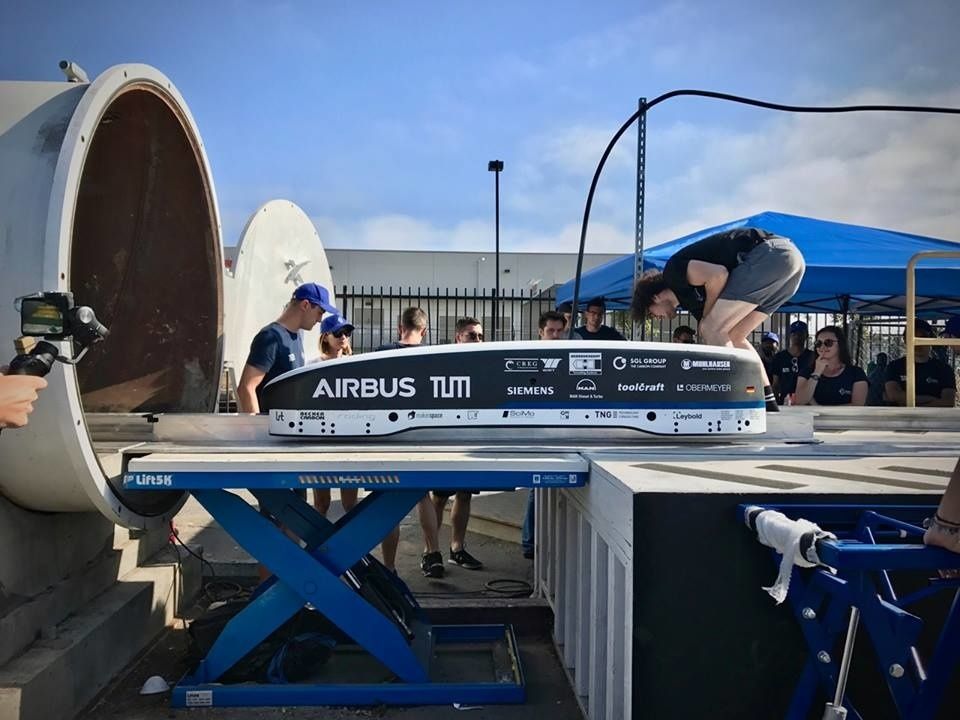Hyperloop competition winner sets new 290mph speed record
A new hyperloop speed record of 290 miles per hour (467km/h) has been set at the third annual SpaceX pod racing competition.
It was a hat-trick for WARR Hyperloop, a team of German engineering students from the Technical University of Munich, who won the event for the third time.
Read More:
- What is a hyperloop and how does it work?
- Virgin Hyperloop One 'very confident' of construction in 2019
- Arrivo: Where this hyperloop company is going, it doesn't need tunnels
Sponsored by Airbus among others, the team's self-propelled hyperloop pod reached just over 290mph along SpaceX's 0.75 mile (1.2km) test tunnel on Sunday (July 22), beating fellow finalists entered by teams from the Netherlands' Delft University, and EPF Loop from Switzerland.
Although organized by SpaceX and hosted at the company's California headquarters, the rocket-making company is not invested in any hyperloop firm.
Powered by a 50kW electric motor, WARR Hyperloop's test vehicle is made from lightweight carbon fiber and weighs 154 pounds. Although the vehicle's acceleration performance was not disclosed, the team claim it can stop within five seconds, using pneumatic brakes. We imagine such performance will be toned down greatly before a version is built to carry human passengers…
We're excited to announce that our team WARR Hyperloop is the winner of the 2018 SpaceX Hyperloop Pod Competition!!!!!
We managed to go almost 50% faster than last year, reaching a final speed of 467 km/h (290 mph)!
We'd like to sincerely thank all our sponsors! pic.twitter.com/YpPTURnHp5
— WARR Hyperloop (@WARR_Hyperloop) July 23, 2018
WARR's vehicle was, as in previous years, far quicker than the competition. Delft University managed to post a speed of 88 mph (insert your own Back to The Future joke here), while EPF Loop managed just 55mph, after a number of technical issues with the vehicle.
A new rule for this year's competition - and to promote technical evolution - was that teams could no longer use a SpaceX-built 'pusher' to get their vehicles going. For 2018, all pods had to be self-propelled.
The 2018 event also introduced a new mini-competition where teams were invited to show off their pod's levitating abilities, where they had to maintain alignment with the test track while hovering above it using magnetism.
The German team's top speed of 290mph was almost 50 percent quicker than it managed in SpaceX's last hyperloop competition, held last August. In January 2017, as the first SpaceX competition, WARR won with a top speed of just 58mph, demonstrating how quickly the technology is being developed.
